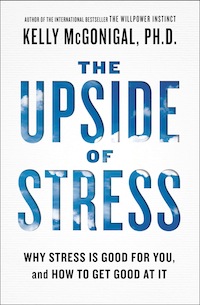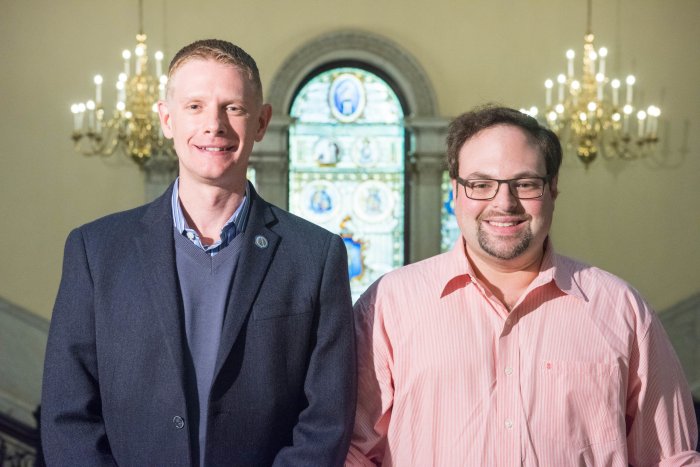Kelly McGonigal may be the most excited about back-to-school season.
“I wish all stress were as good as back-to-school stress,” the Stanford University professor tells us. “There is some obvious meaning attached to it; it’s a perfect opportunity to take a growth mindset because the entire point of one’s education is to grow and to learn. All the way from childhood there’s that sense of possibility when a new school year begins.” RELATED: Red wine kills social stress As a health psychologist and lecturer, she sees stress every day on the pressure cooker that is her campus and spent years telling people how to manage it. But research led her to realize there is a serious mind-over-matter effect when people learned to see their anxiety as an asset, which led to her new book, “The Upside of Stress.” If her description of the beginning of the school year took you back to a time, there’s a reason. The technical term for McGonigal’s tactics in the book is quick-intervention mindset shifts — “really great things we can remind ourselves of that I think are much more intuitive when we’re younger,” she explains. The objective: Give your stress meaning. In trying to ditch the negative connotation of the word, McGonigal created a different definition: “Stress is what arises when something you care about is at stake.” Keep that in mind and follow her tips to step confidently into the new school year.
Draw a mental map
Outlining your goals gives everything — the long lectures, the missed parties, the tough tests — purpose. Think about what you want to offer the world, how you think the world should be different, the change that you want to see, what you would like to do to contribute to that change, and think about how your education is enabling you to be that kind of person and make that kind of contribution. “That makes everything from math problems less boring and more interesting to making it easier to persevere when you experience academic setbacks,” she says. Set stress goals
Instead of trying to control things you can’t — traffic, illness — give yourself stress goals like running a half-marathon or taking a higher-level course. Rather than taxing your resources, this is what will build them up. “I’m always looking for a new course to teach, a new school to teach [at] — but it’s a good reach. I’m always encouraging my students of all ages to think about how they want to develop and what would be a challenging experience that will cause them stress and [to] grow.” Fear becomes confidence
“People often feel like they don’t belong and are often uncertain about their ability to reach their goals. It’s exceptionally rare not to have that experience, and it doesn’t mean that you’re unable to reach your goals,” McGonigal says. “That can actually be a positive source of motivation — as you persist, as you survive, that sense of wondering ‘Can I do this? Am I right here? Are people looking at me and expecting me to fail?’ changes over time.” Change is possible
After you’re more confident in your abilities, reflect on the person you were a few years ago, who you are now, and what possibilities you can imagine for yourself. This puts you in the “change is always possible mindset,” as McGonigal calls it. “That sense that people can change has been demonstrated to help everything from academic persistence to reducing the likelihood that teenagers will become depressed throughout high school.” Reclaim your energy
You don’t have to take 20 deep breaths or control your anxiety to succeed. See your stress before an exam as a resource, rather than a sign that you’re gonna blow it, says McGonigal. “You come to understand that your pounding heart means that your body is getting ready to help you rise to the challenge, it means your brain is getting more energy. Kids and adults who release more adrenaline before an exam tend to score higher. “One of the biggest mistakes people make is to think the goal is to never experience stress so they teach a lot of strategies for squashing it, like deep breathing. There’s nothing wrong with deep breathing, but you don’t need to be calm all the time in order to achieve or succeed; you can view that same stress as motivation and ask yourself, ‘How do I want to use that energy?’” Embrace biology
Use your homesickness as motivation to build new roots, connect with people and try new things — it’s what it’s there for. “We have that experience — the emptiness, the loneliness or feeling overwhelmed — to push us to engage with the world. The biology of loneliness is to increase the hormone in your body that makes you want to be around people,” she explains. Those hormones also make it easier to connect, which is why you tend to develop intense bonds during freshman year. “The worst thing you can do is wait for it to go away.” Hawaiian habits to beat city stress
Hawaiian habits to beat city stress















